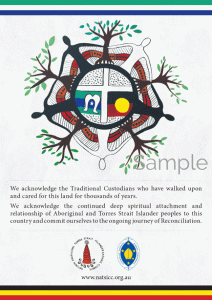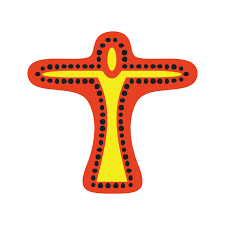2021 Australia Day Reflection from the National Aboriginal and Torres Strait Islander Catholic Council“We find ourselves pondering whether Australia will ever be the same after COVID-19? It might be more useful to ask whether it shouldbe the same after the pandemic. Australia can continue to learn from the challenges of the virus and embrace the gifts of First Nation’s Culture to make it a better place for all. Whilst we should be talking about these things all year, Australia Day is often the trigger for discussions around moving the date, what our Country stands for or changing the National Anthem. For the record: – Yes, we should change the date to May 27 (the day that Australia voted to grant citizenship to us Aboriginal and Torres Strait Islander Peoples and to remove us from under the Fauna and Flora Act in 1967), – Australia should stand for equality, respect, and compassion for all and, – Yes, the National Anthem should be representative of all.” Read more of NATSICC’s 2021 Australia Day Reflection here. Drawing on wisdom from the experience of Aboriginal and Torres Strait Islander people and communities in dialogue with Scripture and Catholic Social Teaching, it offers four recommendations: 1. After suffering together through the pandemic, Australians should forge forwards with humble hearts and a unity of mind and armed with a renewed sense of equality and care for one another. 2. Continue to empower and acknowledge the dignity and worth of individuals, created equally in the image of God, through the extension of assistance schemes and the provision of a living wage. 3. All Australians should acknowledge, in our actions and in legislation, that Elders/Old People are valuable and contributing members of society and that we are responsible to care for and love them – just as they did for us. 4. Aboriginal and Torres Strait Islander gifts, skills, and knowledge to be utilised for the betterment of First Nations Peoples and Australia as a whole. “As we enter 2021 with a sense of hope and ‘rebirth’ we ask that, for the first time in post-colonial history, Australians stand together to lift one another up. Stand alongside the Traditional Custodian. Stand alongside the migrant striving for a better life. Stand alongside the grandmother that has lived through so much. We are much stronger, and much better when we are together.” 2021 Australia Day Reflection, NATSICC. In 2019 the National Aboriginal and Torres Strait Islander Catholic Council (NATSICC) first publicly joined calls for the date of Australia Day to be changed. They explained: The 26th of January 1788 was not a day of celebration for Aboriginal and Torres Strait Islander people nor was it for the passengers upon the first fleet – a mix of prisoners and military personnel. Perhaps it is time that we rethink the date upon which our nation comes together as one to recognise and acknowledge the gifts that God has provided in our great southern land. For the past year, those that sit upon the National Aboriginal and Torres Strait Islander Catholic Council have asked their community, peers, friends and fellow Catholics if they celebrate Australia Day. The resounding response was no. That answer was not followed by hatred or vitriol, it was simply that they felt it was not meant for them nor was it mindful of the hurt experienced by Australia’s First People. For many, the opportunity to spend the day with family and friends is appreciated and our people understand and respect the pride that some Australians have for the day, however the foundation of unity and inclusiveness is just not there. National Aboriginal and Torres Strait Islander Catholic Council, 2019. For ReflectionKey points from NATSICC’s statement:
|
National Indigenous Television (NITV), and the wider SBS network, invite communities to deepen their understanding of January 26 and what it means to be Australian through the upcoming programming slate, Always Was, Always Will Be.
A schedule curated to highlight themes of Country, Identity and Nation will be featured throughout the week, January 19-26, across SBS channels, including documentaries, news, movies and more.
Click here to read more…
https://www.sbs.com.au/nitv/article/do-you-know-what-aboriginal-land-youre-on-today/ytff85vi1










